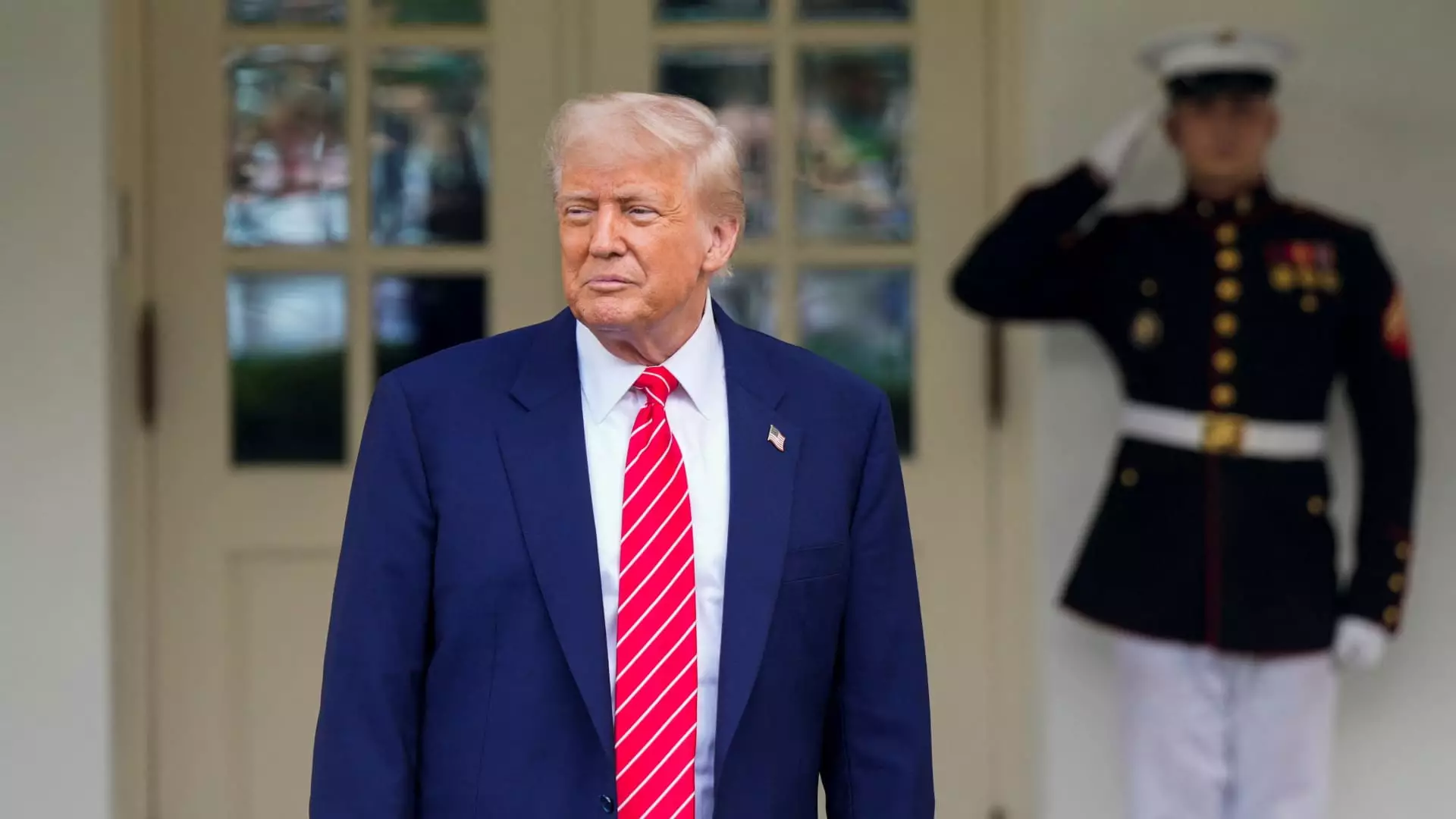The quest for creating a stable regulatory framework for cryptocurrencies in the United States has faced significant hurdles recently, prominently fueled by the actions and personal interests of former President Donald Trump. The latest casualty in this chaotic backdrop was the failure of the GENIUS Act, legislation designed to set federal guidelines for stablecoins, which are digital currencies tied to more stable assets like the U.S. dollar. This legislative setback is emblematic of the larger issues surrounding governance, personal ambition, and financial interests within the political realm.
Lawmakers are increasingly wary of the potential ethical pitfalls associated with Trump’s involvement in the cryptocurrency space, particularly given his own ventures in digital assets. As Senator Jeff Merkley from Oregon aptly pointed out, the intertwining of personal financial interests with public policy can create an environment ripe for corruption and compromises in national security. His assertion that buyers of cryptocurrency associated with Trump could essentially enrich him raises critical questions about integrity in governance. When policymakers prioritize personal gain over the public good, it can lead to broader repercussions, undermining trust in governmental institutions.
The Legislative Landscape: Challenges and Opportunities
Passing any legislation in Congress is no small feat, especially for Republicans facing challenges from a unified Democratic Party in the Senate. The GENIUS Act appeared to have garnered a degree of bipartisan support, reflecting a growing acknowledgment among lawmakers of the need for a structured approach to stablecoin regulation. However, that potential unity faltered under the weight of Trump’s personal interests; the emergence of his meme coin, $TRUMP, complicated the political calculus.
The $TRUMP coin—a venture that not only includes the controversial promotion involving a dinner with the President but also the financial entanglements it attracts—has become a symbol of Trump’s aggressive monetization of his public persona. It epitomizes the blurred lines between a public official’s responsibility and their personal profit motives, an ethical quagmire that many legislators, including Democratic leaders like Chuck Schumer and Elizabeth Warren, are keenly aware of. The increased scrutiny around Trump’s coin and its implications cannot be dismissed as mere partisan bickering; it represents a calamitous clash of interests at the highest levels of government.
The Rise of Criticism and Calls for Accountability
Following the bill’s defeat, Democrats quickly pivoted to unveil the “End Crypto Corruption Act,” underscoring a concentrated effort to curb potential conflicts of interest among elected officials. This knee-jerk legislative response highlights the urgency with which lawmakers perceive the problem: the intersection of public service and private gain is not merely an abstract concern but a real threat that diminishes the integrity of the entire political system.
Senator Lisa Blunt Rochester’s concerns seem justified when considering the weight of Trump’s financial holdings and their potential influence on policy decisions. The direct line connecting his ventures to legislative proposals raises valid fears regarding self-dealing and financial mismanagement. This not only calls Trump’s commitment to ethical governance into question but also poses the risk of igniting further regulatory backlash against an already beleaguered crypto industry.
Calls for investigations into Trump-linked coins reflect a larger demand for transparency and accountability. The crypto community, which thrives on innovation and trust, risks being painted with the same brush of corruption that currently tarnishes its associations with the Trumps. Can true progress be made while the very individuals crafting the rules stand to benefit personally in profound ways? This is an essential question that the legislative body must grapple with as it seeks to set a path forward.
The Future of Cryptocurrency: Hopes and Hurdles
Despite the setbacks, optimism still lingers among proponents of cryptocurrency regulation. The urgency for developing strict guidelines is palpable—lawmakers recognize that consumer protections regarding stablecoins have never been more necessary. Investors in the crypto space are keenly aware that the absence of a regulatory framework leaves them exposed to risk. The financial chaos resulting from unchecked ambitions could deter investment and innovation within the U.S., potentially ceding ground to countries that present a more stable operating environment for digital currencies.
As Ryan Gilbert, founder of the fintech venture capital firm Launchpad Capital, notes, the ramifications of Trump’s personal interests extend beyond this singular bill to broader implications for the future of crypto legislation. He identifies the need for both a reliable regulatory landscape and an unprecedented level of ethical governance to ensure that the U.S. remains competitive on the global stage. If not, there is a tangible fear that the United States could find itself as a laughing stock, hampered by conflicts of interest that hinder growth, investment, and confidence in the burgeoning cryptocurrency market.
In examining the current political landscape, it is evident that the stakes are incredibly high. The inherent push and pull between personal profit and public policy has triggered a critical examination of the ethical frameworks governing financial legislation. Without a recalibration towards integrity, the goal of fair and innovative crypto regulation may remain a distant dream, marred by the shadow of personal ambitions fueled by the current political climate.


Leave a Reply